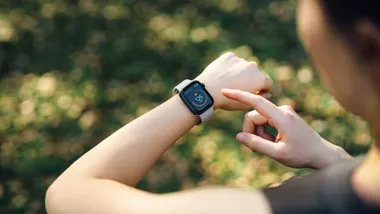
It’s rude to swear. Loud music will burst your ear drums. Computer games turn you into a zombie. We’re constantly told how our bad habits ruin society but what if they don’t? What if being “bad” is actually good for us? Decide yourself with our top 10 beneficial bad habits. By Katy Moore

Whether you tap, twitch, yawn or stretch, it could help you as fidgeting can burn up to 350 extra calories a day. Research done at a US clinic found evidence to suggest the less fidgety you are, the more obese you could be.

The words we all long to hear, housework is bad for you! Well, kind of. Not only do studies show cleaning products can increase the chances of asthma in newborns but bed making can create a nice moist happy home for those 1.5 million dust mites dancing in your doona.

Could it be the more you snooze the less years you’ll lose? Health expert Professor Peter Axt believes people on the go have a shorter life expectancy than those who live in peace, such as monks. He says it’s evident in the animal kingdom too, where many species find the stress of everyday survival shortens their life in comparison to their cared-for cousins in the zoo.

It may not be a socially acceptable form of pain relief but studies have shown using an outburst of profanities rather than a few “darn its”, allow pain to be handled for longer. Scientists reckon pain thresholds could be higher in “swearers” due to an elevated heart rate which increases aggression levels and the more aggressive you are, the less sensitive you are to pain. Maybe Gordon Ramsey was a test subject?

Despite being criticised for creating socially isolated and overweight kids, it turns out that computer games could be beneficial in multiple areas of learning, especially hand eye coordination and strategic skills.

While mobile phones constantly get bad press about everything from the health risks to antisocial behaviour, Professor Helen Haste in the UK believes texting bridges generation gaps in families. Her social study found for young teens often at odds with their parents, texting was a crucial tool for communication because explosive emotions could be edited out.

Small amounts of stress can actually play a positive role by giving our immune system a kick into action. Stress can boost adrenaline, enabling us to hit that deadline at work but it improves memory too. Just remember though, there’s a fine line between functional stress and stressing out!

Pump up the volume if you want to be happy and alert. According to researchers at Manchester University in UK, the part of the ear called the sacculus goes into happiness overdrive when the beat reaches 90 decibels. It then encourages the brain to join the party by releasing feel-good hormones, which put us on a natural high.

Research conducted at Yale University in the US found that moderate gambling creates mentally healthier, happier people than those who don’t like a flutter. Whether it’s the brain stimulation from different types of gambling, or the social aspect of it, certain forms of gambling can actually be a relief for depression sufferers.

You know the ones, those rivals cleverly disguised as friends. Believe it or not, competitive frenemies can actually boost your confidence and help you achieve goals. Whether they push you out of your comfort zone at the gym or motivate you at work, just make sure your life isn’t dictated by them alone.











